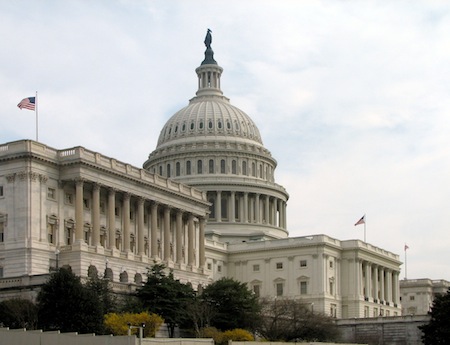Democratic Senators Say Digital Ad Fraud Rampant

The smarter way to stay on top of broadcasting and cable industry. Sign up below
You are now subscribed
Your newsletter sign-up was successful
A pair of powerful Democratic senators have called on the Federal Trade Commission to protect consumers from digital advertising fraud, which they suggest is rampant, including potential regulation of reform of ad exchanges.
In a letter to Federal Trade Commission chair Edith Ramirez, Sens. Mark Warner (D-Va.) and Chuck Schumer (D-N.Y)—members of the Senate Banking Committee as well as active on communications and tech issues—pointed to recent studies that have found "rampant fraud" in the $60 billion digital ad market, including one finding that as much as 98% of all ad clicks on major ad platforms, including Google, Facebook, Yahoo! and LinkedIn, were not by human fingers but by computer-automated bots.
"The ad fraud market has scaled to such an extent that it has attracted participation by organized crime," to put an even tougher point on the issue. “Bots plague the digital advertising space by creating fake consumer traffic, artificially driving up the cost of advertising in the same way human fraudsters can manipulate the price of a stock by creating artificial trading volume," they told Ramirez, suggesting regulation or legislation may be needed to stem the tide.
“It remains to be seen whether voluntary, market-based oversight is sufficient to protect consumers and advertisers from digital advertising fraud," they said. "And in the interim, consumer confidence in digital advertising markets has eroded, as evidenced by user adoption of ad blocking tools. The cost of pervasive fraud in the digital advertising space will ultimately be paid by the American consumer in the form of higher prices for goods and services. Just as federal regulation has evolved to keep pace with the ever-growing sophistication of our financial markets, so must oversight of the digital advertising space.”
They want Ramirez to answer the following questions:
1. "[D]igital advertising fraud takes many forms, including through botnets and malware. Is the FTC observing a trend that favors one particular type of advertising fraud over another? If so, what factors are leading to the prevalence of that particular type of fraud?
2. "What is the projected economic impact of this degree of data and revenue leakage amongst media owners or publishers?
The smarter way to stay on top of broadcasting and cable industry. Sign up below
3. "What steps is the FTC taking to protect consumer data and mitigate fraud within the digital advertising industry? What regulatory agency currently provides oversight of mobile advertising platforms?
4. "What steps can be taken to reform opaque advertising exchanges?
5. "What can be done to more closely align the incentives of ad tech companies with publishers, advertisers and consumers?
6. "To the extent that criminal organizations are involved in perpetuating digital advertising fraud, how is the FTC coordinating with both law enforcement (e.g., the Department of Homeland Security or the Federal Bureau of Investigation) and the private sector to formulate an appropriate response?"
"We share the concern of Senators Warner and Schumer about ensuring that digital ad fraud does not impact consumers," said Dave Grimaldi, EVP of public policy for the Interactive Advertising Bureau. "The IAB, in conjunction with our partners at the Association of National Advertisers and American Association of Advertising Agencies are committed to working assiduously to address the problem of advertising fraud; we created and launched the Trustworthy Accountability Group (TAG) two years ago to address supply chain issues like fraud. A central pillar of TAG is to enhance accountability and transparency in the digital ad industry. To that end TAG just recently launched the "Certified Against Fraud Program," a seal program that will recognize companies that have agreed to comply with a set of guidelines related to their specific role in the digital advertising supply chain."
Contributing editor John Eggerton has been an editor and/or writer on media regulation, legislation and policy for over four decades, including covering the FCC, FTC, Congress, the major media trade associations, and the federal courts. In addition to Multichannel News and Broadcasting + Cable, his work has appeared in Radio World, TV Technology, TV Fax, This Week in Consumer Electronics, Variety and the Encyclopedia Britannica.

